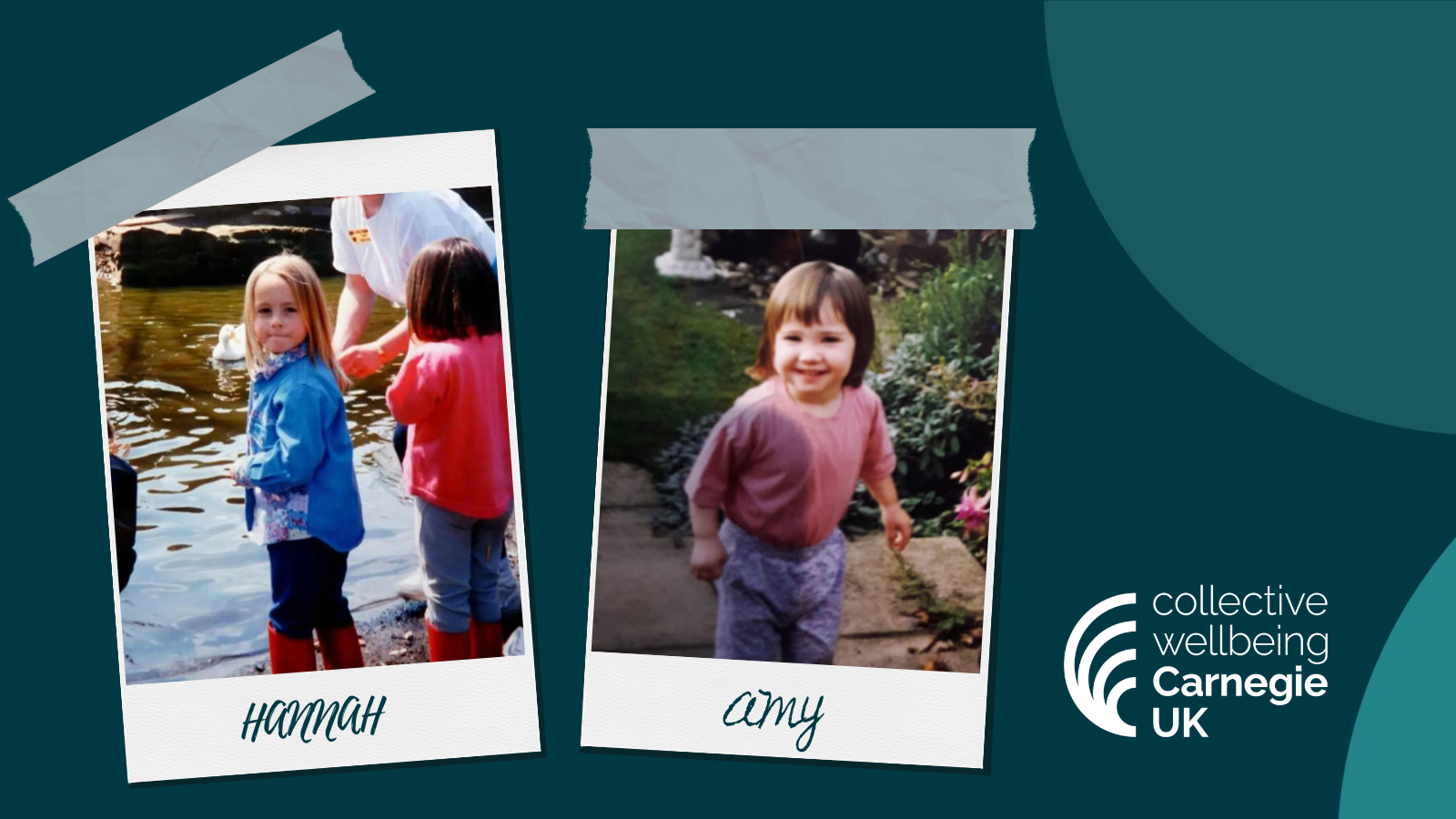Cost of living will make summer holidays a struggle for many

- by Amy Baker and Hannah Paylor, Carnegie UK
- 9 August 2023
- 4 minute read
The summer holidays are well underway for many children in England and Wales. For those in Scotland and Northern Ireland, the new term is on the horizon.
We’ve been looking back on our own memories of summer holidays, shown in the pictures above. Ice cream. Bike rides. Water fights. The smell of sun cream. Trips to the cinema and the local theme park. These are just a few of the memories we have growing up. But rising living costs mean that many children will not be afforded the same opportunities this summer.
Earlier this year, we published research on the impact of the cost of living emergency on collective wellbeing across the UK. A YouGov survey of over 2000 people told us how the cost of living was affecting not just the money in people’s pockets, but all the things that make life worth living. This included their physical and mental health, freedom of choice about how they spent their free time, and the ability to spend time with friends and family.
Particularly affected were families with children. Imagine a class of 30 school children headed home for the holidays, having said goodbye to their class teacher and with artwork from the school corridor in hand. According to our research, half of these kids will spend their summer indoors, with parents having reduced social activities outside because they simply cannot afford to go out[1].
The summer holidays have always put a financial strain on families with extra costs of childcare, holidays, and activities for children. We were concerned in February – when the research was undertaken – that without action, the impact on children and families would increase. And our concerns have been confirmed.
Inflation has hit childcare costs. The Coram Family and Childcare annual survey found that childcare costs of a six-week break could amount to almost £1000 per child this year. A YouGov poll by Barnardo’s showed that almost half of parents said that they will struggle to afford family holidays and days out. This is damaging to children’s basic wellbeing, preventing them from doing things that they enjoy and spending time with their loved ones. It’s also putting them at risk of more serious harms. For example, Barnardo’s fear that with families left with no other option than to leave children unsupervised, children will be more at risk of online sexual abuse and exploitation.
The UK Government plans to support families through its Holiday Activity and Food Programme (HAF) run since 2018, providing food and activities to children eligible for free school meals. Several local governments are also running similar schemes, including South Lanarkshire in Scotland, Powys in Wales and Buckinghamshire in the south of England. Whilst very important, several charities argue that this support does not go far enough. Far example, Barnardo’s are calling for the UK Government’s HAF programme expands to all family in receipt of universal credit
The cost of living emergency is not a short-term economic crisis. Its effects on children are likely to continue long after inflation goes down. The costs of poverty, poor nutrition, loneliness and anxiety eventually end up at the door of the National Health Service and other public services.
What’s happening this summer provides yet more evidence that our current approach to public policy is not working. We encourage decisionmakers across the UK to imagine a different way forward and put wellbeing at the heart of decision-making across the UK.
[1] 47% of this group said they had reduced social activities outside the home (compared to 30% of those without). And 67% of those with children reported a negative impact of their ability to participate in leisure activities (compared to 46% of those without). We heard a similar story in people’s free text responses to the survey.
Help us make the case for wellbeing policy
Keep in touch with Carnegie UK’s research and activities. Learn more about ways to get involved with our work.
"*" indicates required fields